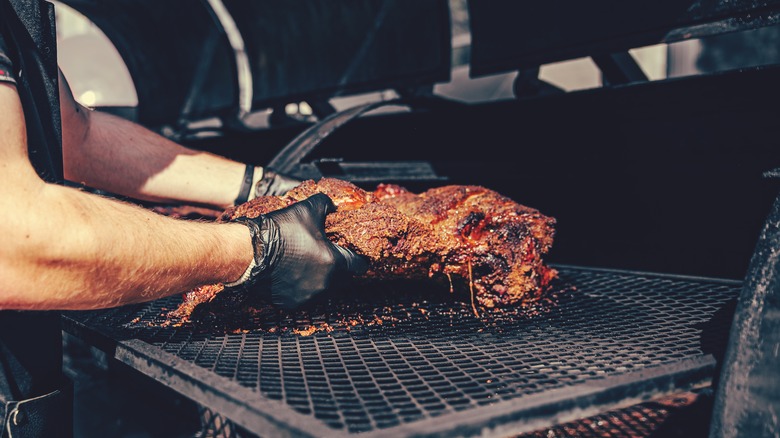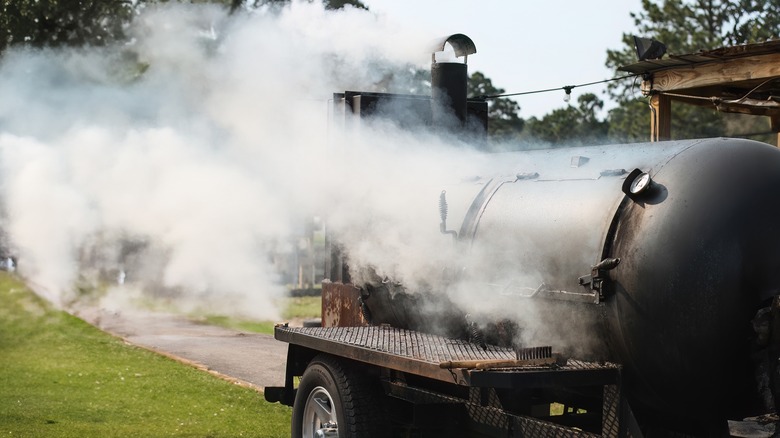What You Need To Know About Humidity When Smoking Meat
Smoking meat is obviously a dry cooking method that uses low temperatures, long cooking times, and plenty of aromatic smoke. However, even a dry cooking method like this utilizes humidity. We've consulted Robbie Shoults, celebrity chef and owner of Bear Creek Smokehouse, High Horse 1898, and Marshall's Mercantile, to help explain the role of humidity in smoking meats.
Despite the low and slow method of smoking meats, it still runs the risk of losing too much moisture. According to Shoults, "Humidity in a smoker can help prevent your meat from becoming overly dry." But even then, you still have to maintain an equilibrium between vapor and smoke. Shoults dived into various methods by which you can incorporate and "control humidity," depending on the way you smoke meat. "If you are using a charcoal smoker, that many times will cook at a higher temperature, you might consider using a water pan," Shoults explained. "The water pan will help ensure that you have humidity in the smoker and will catch any grease drippings before they hit the fire, preventing any unwanted flare-ups."
For other smokers, Shoults recommends using apple cider to spritz your meat while smoking. The apple cider will not only moisturize the meat, but its inherent acidity will tenderize it as it cooks for the juiciest results. Lastly, you can wrap smoked meat in butcher paper for the last leg of the smoking process to keep the humidity in once your meat is at its desired color.
More notes on keeping smoke meat moist
Robbie Shoults shared several tips for controlling the humidity, but there are other smoking measures you can take before the meat goes in and while it's cooking. Whether it's brisket or pork butt, fat content plays a key role in its moisture, so the juiciest results start with a good lean-to-fat ratio. A general recommendation for the ideal lean-to-fat ratio for cooking meat falls between 80-to-20 and 70-to-30.
A meat that's too lean is at the greatest risk of drying out in the smoker because fat insulates the moisture and adds a really nice flavor. Another important step to take is generously salting your meat. Salt not only brings out the umami-rich flavor of meat, but it will also tenderize it and prevent it from becoming tough as it smokes.
Controlling the temperature of your smoker is as important as controlling the humidity, so be sure to keep a watchful eye on the grill temperature. A meat thermometer is an invaluable accessory that will give you the most accurate reading of the meat's rate of cooking and progress. The color of smoke rising from the smoker is a great visual clue to help you gauge the condition of humidity inside. Thick black or white smoke is an indicator that the wood has burned up and your meat may be losing too much moisture. A thin line of blue smoke represents the ideal balance of humidity and smoke.

